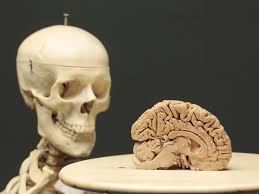Mechanisms of action of social behavior
This treatise on the drivers of social behavior and knowledge development was inspired by the works published by renown sociologists Peter L. Burger and Thomas Luckmann, circa 1965. The handicaps they didn’t know they had from not knowing about the existence of Plan B and the keystones are noteworthy. They reasoned that if the long-sought ideological alternative to inevitable social collapse wasn’t in sociology’s history, Utopian society was impossible. For decades before 2013 we didn’t think social system transpositions, A→B, languishing to flourishing, were possible either. Other vital elements that sociologists invariably miss include:
- Plan B exists
- Social ecosystem keystone
- Nash Equilibrium, whack a mole
- The 2nd Law
- The 2½ Rule
- The 36% Rule of turnover
- Value systems, the platinum rule
- The instincts of workmanship
- The Front End, AQI
- Responsibility for results and autonomy to deliver
These omissions are not discussed on this page. The website covers everything listed. The significance of this list list is that any item avoided – overwhelms everything on this page from sociology. For example, if turnover exceeds 36%, the institution is going down no matter what else is done.
To their credit, sociologists taught us about important aspects of social behavior that our profession of engineering trained us to avoid like the plague. We never knew, for example, that the ruling class was an avowed enemy of the producer class that provides their necessities and luxuries. Now, that noble truth can be demonstrated in fifteen minutes anywhere.
Discussion scope includes individual behavior and the behavior of human collectives concerning:
- Reality: Objective and Subjective
- Mechanisms of action
- The social dimension of knowledge development
Reality
Reality is defined as a quality appertaining to phenomena that we recognize as having a being independent of our own volition, like natural laws, and we cannot ‘wish them away.’ Since reality is socially constructed, our treatise on sociology includes the process in which this occurs.
Man is biologically predestined to construct and to inhabit a world with others. This world becomes for him the dominant and definite reality. Its limits are set by nature, but, once constructed, this world acts back upon nature. In the dialectic between nature and the socially constructed world the human organism itself is transformed. In this same dialectic, man produces reality and thereby produces himself. Different objects are seen by your conscious mind as constituents of different spheres of reality. Your anchor in the social construction of reality is paying conscious attention to everyday life.
A social world is defined as a comprehensive and given reality confronting the individual in a manner analogous to the reality of the natural world. The reality of everyday life contains an interobjective world you share with others filled with objectivations of human subjectivity. Reality is socially constructed.
Everyday life presents itself as a reality that you interpret in subjectively meaningful ways as a coherent world, taken for granted. The reality of everyday life is the platform of paramount reality, an ordered reality prearranged in patterns. It is organized around the “here” and “now” of my presence. It is the world within my reach that I act on to modify, making a new reality that acts on me. We engage reality as discrete spheres of reality as an ordered reality, sometimes prearranged, like fractals, in compelling facticity. The reality of everyday life is only understood when filled with objectivations.
Man’s product acts back on him, serving as a functional part of his control system. Internalization takes the objectivated social world and retrojects it into consciousness in the course of socialization. Only with turnover indoctrination does the fundamental social dialectic appear in its totality. At this point, institutional world requires legitimization, ways it can be explained and justified. Its reality is a historical one, which comes to the new hires as tradition, not biographical memory. The 2nd Law directs that, in time, deviations from tradition will be necessary to keep the institution afloat. Compared to the reality of everyday life, other realities appear as finite provinces of meaning, enclaves within the paramount reality marked by circumscribed meanings and modes of experience.

Institutional reality
Institutions come with historicity and control. Institutions always have a history of which they are the products. They are their choices. Awareness of the historical process in which the hierarchy arose, is necessary to understand the institution. Institutions, by definition, control the conduct of their members by setting up predefined patterns of conduct. It is a system of social control. Agglomerations of institutions form a society experienced as an objective reality. Social systems are always in the process of construction.
Institutions are there, external to the individual, persistent in their reality, like it or not. They have coercive power over him through various control mechanisms. They cannot be understood by introspection. He has to go out and learn them as he must about nature.
Experiences belonging to different spheres of reality are integrated by incorporation in the same symbolic universe of meaning. The integration of realities within the paramount reality of everyday life is essential because failures to do so erodes the body of taken-for-granted, routinized existence in society. Without being able to “put everything in the right place,” social dysfunction is inevitable.
Society exists as both objective and subjective reality. The social system that delivers empirical reality appears as an integrated whole. The two perspectives are bound together by:
- Externalization
- Objectivation
- Internalization
Any understanding that ignores one of these perspectives is defective. An individual member of society who simultaneously externalizes his own being into the social world and internalizes it as objective reality is thinking system.
The symbolic universe
Symbolic universes are sheltering canopies over the institutional order as well as over individual biography. They delimit social reality by establishing hierarchical ranks and setting limits of what is relevant in terms of social interaction.
The ultimate legitimation of the paramount reality of everyday life is a shield against terror. The symbolic universe shelters the individual from angst by bestowing ultimate legitimation upon the protective structures of the institutional order. What is going on today is delegitimizing the protections of government as incompetent and ineffective. Terror thereby escalates unmitigated, measured in everyday social experience by your subconscious mind.
Meanwhile, the institutional order and your biography are incessantly assaulted by 2nd Law realities. Unfortunately, the institution does not know how to keep unrest and chaos at bay. Everything it does to reduce it makes things worse. An impotent ruling class brings terror to conscious proximity of the man in the street. Human existence is an ongoing externalization. Man constructs the world into which he externalizes himself. He projects his own meanings into reality. The cosmic universe is theoretical, originating in subconscious reflection, in which you live naively. Reality is where the wheels of symbolic universes hit the road.
It’s not the self-maintaining symbolic universe that creates the bedlam but the institutional order, regulated by laws of Nature more than human volition. When the symbolic universe becomes a reality problem, no longer safely taken for granted, institutions require maintenance to remain stable and that requires conceptual sophistication. Institutions are notoriously incompetent at responding effectively to workforce unrest. Socialization is never completely successful. Even among accredited inhabitants, there are idiosyncratic variations that matter.
When deviant versions of the symbolic universe congeal into a reality in their own right, the reality status of the mainstream version is in jeopardy. The first problem for the status quo is legitimizing repression of the deviant, heretical version. Intersocietal heresies pose a very different challenge than another society successful with an alternate symbolic universe whose taken for granted objectivity is equal to one’s own. When you engage a society that has never heard of your rules and is flourishing you have a problem claiming superiority. What’s worse, its very existence demonstrates empirically that your own universe is less than inevitable.
Maintenance of symbolic universes entails the systematization of cognitive and normative legitimations. Maintenance is more of an elaboration on a higher level of theoretical integration. The relationship between cognitive and normative conceptions is based on certain presuppositions and empirically fluid.
- Mythology
- Theology
- Philosophy
- Science
- Empirical reality
The ancient legerdemain is in full force today implemented by specialist elites. That’s why empirical reality is destabilizing institutional order as never before.
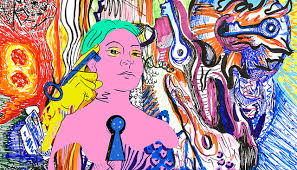
Temporal reality
Because products of human activity are subject to the 2nd Law, they progressively degrade in performance with time. The concrete actions of human beings must adjust to maintain or increase performance and so redefine reality. There is no end to this process.
You are born into an objective social structure where you encounter significant others whose definitions of reality are imposed on you as objective reality. That provides you with an objective social world. Over time, the 2nd Law forces your significant others to modify their definition as they mediate it with their own location in the social structure and their individual, biographically-rooted idiosyncrasies. Thus every layer of the social world is always in a state of flux. That is as it must be. To treat it in any other way is a loser.
As more complex forms of knowledge emerge and an economic surplus is formed, experts devote more of their time to their specialty so as to lay claim to novel status. Eventually they claim ultimate jurisdiction over that stock of knowledge and its impact on the definition of reality. Habitualization and institutionalization limit the flexibility of expert actions, persisting until it creates problems.
As the institutions grow and become more specialized, the legitimizers of expertise get into rival definitions, which are not readily settled. Power in society includes the power to determine decisive socialization processes and so produce reality. This ploy is on exhibit today. Rival coteries of experts are in ugly conflict over social conditioning. Those in control of AI software, for one example, are pushing for AI to become the ultimate definer of reality – no cognitive effort necessary. The 2nd Law does not distinguish between humans and software in its grinding away influence on all monopolistic endeavors and vested interests.
Exceptional social performance undermines the taken-for-granted reality of the traditional status quo. Skepticism of norms encourages curiosity and engenders innovation. Against innovation, the traditional status quo cannot stand.
The formation within the consciousness of the generalized “other” marks a decisive phase in socialization. It implies the internalization of society as such and of objective reality. At the same time, he is learning the language, the most important content and instrument of socialization. He learns how objective reality is translated into subjective reality, even if asymmetric. In internalization, reality is always incomplete and there are always subjective elements of reality that have not originated in socialization. Subjective biography is not fully social.
The correspondence of objective and subjective reality is always getting out of synch. The flow of disenchantments includes institutionalized programs for everyday life promoted as necessity actually being a bundle of contingencies. “One must perform the rituals lest the gods be angry.” Eventually you learn why the programs are as they are in the haunting presence of change and phantasms of the reality of everyday life..
In primary socialization the significant others are considered mediators of an inevitable reality. In secondary socialization, one already knows there are other worlds quite different than the one taught, and the new significant others are institutional functionaries with the formal assignment of transmitting specific knowledge. While it takes severe biographical shocks to disintegrate the reality of primary socialization, it is relatively easy to set aside the reality of the secondary internalizations. Best results come from a plausible continuity between the original and the new elements of knowledge.
Since socialization is never complete and the contents it internalizes are eroded by the 2nd Law, it is difficult to maintain a correspondence between objective and subjective reality.
It is vital that most others encountered by the individual in everyday life serve to reaffirm his subjective reality. Significant others occupy a central position in the economy of reality-maintenance by explicit, emotionally-charged confirmation of his identity.
The most important vehicle of reality-maintenance is conversation. Everyday life includes social encounters that reinforce or challenge your mental models of reality (M2R). Face to face contact always activates the rich aura of recognition programs built into your subconscious mind that frame the conversation in an implicit way. The reference standard of the world used by your subconscious is the world silently taken for granted by your society. The great part of everyday conversation relates to M2R maintenance in a casual manner.
While conversational apparatus maintains reality, it also modifies it as channeled by the 2nd Law. Items are dropped and added. Firm contours are given to topics previously introduced in a fleeting and unclear manner. They are then assigned to a definite place in the real world M2R. This potency of conversation is already given cohesive credence via linguistic objectivation. It creates, apprehends, and allocates “the world.” In face to face conversation, the realizing efficacy of language has no equal. Its effect in unfolding biographical experience is reciprocal.
Subjective reality husbandry is always dependent upon specific plausibility structures, i.e., a specific social base and process. If you identify yourself as a man of importance, you require a milieu of those who share the relevance and confirms that identity. The plausibility structure is the platform for suspending doubt about your M2R as it is incessantly eroded by the 2nd Law.
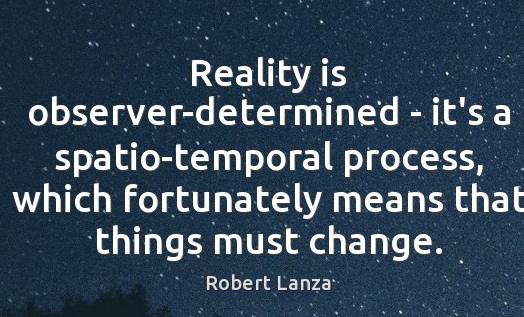
Crisis
In crisis situations, reality confirmations have to be explicit and intensive. Society itself sets up specific procedures to deal with crisis occasions. It fears a breakdown in reality in times of natural catastrophe that transforms subjective reality. Subconscious reality can be fragile. It is always under attack by the 2nd Law and turnover. Each crisis response is an experiment calling for mass ingenuity.
Typically the crisis is apprehended as a major threat to the status quo. Subjective reality is never total or uniformly understood and the Establishment knows this. If it botches the response in the eyes of its constituents, the loss of trust is far reaching. Getting its reputation back can require a process of resocializing – alternation. It has to start with M2R-damaged goods and ablution is easier said than done. Ablution has to include both social and conceptual conditions. It needs a plausibility structure up to the task. The individual’s world finds its cognitive and affective focus in tatters. He’s starting socialization anew. Rats.
Moving on
Incipient counter-definitions of reality and identity are present as soon as a durable group of deviants congregate. The group triggers a more complex distribution of knowledge and initiates its own socialization process. The question “Who am I?” arises because two conflicting answers are socially available. You are a man-in-the-middle and the keystone power that brought the society into a flourishing state. The keystones gain from their visible conduct in the realm they lead and their invisible self-identification as Maslow’s paramount state – transcendence.
There is no prescription for alternation into any conceivable reality. All endeavors in that direction must be personalized, in close proximity and frequent. It is more important to correlate with the past than re-interpret it. Transformation goes with social mobility.
In re-socialization, the past is reinterpreted to align with the present reality. In secondary socialization, the present is interpreted so as to stand in a continuous relationship with the past. There is no generic recipe for doing this. The objective reality of institutions is not diminished if the individual does not understand their purpose or their mode of operation. He must ‘go out’ and learn about them, just as he must learn about nature. When implemented, definitions of reality have self-fulfilling potency. What remains sociologically essential is the recognition that all symbolic universes and legitimations are human products. Their existence has its base in real people and has no empirical status apart from their performance.
Socialization takes place in a specific social structure. Its contents and measures of success have social-structure consequences. Internalization takes place using these structures. Re-socialization is cutting the Gordian knot, abandoning the quest for consistency, and restructuring reality from scratch. Totally successful socialization is anthropologically impossible.

Identity
Identity, a key element of subjective reality, stands in a dialectical, contentious relationship with society. Identity is formed by social processes. Once formed, social processes continue to modify identity as the 2nd Law degrades reality itself. Traditional definitions of reality inhibit social change. The interplay of organism, individual consciousness, and social structure has major effect on identity. The orientation of the society to the 2nd Law of thermodynamics determines whether the society will languish or flourish. A society proactive on entropy extraction cannot fail. A society in status-quo defiance of the 2nd Law cannot endure.
Collective identities, types, are self-defining. Assertions of type can be observed in everyday life and can be verified or refuted by ordinary men endowed with common sense.
Identity is a phenomenon that emerges from the dialectic between individual and society. Identity types are social products tout court. Theories of “identity” are always embedded in the interpretation of reality, built-in to the symbolic universe. It has to be located in a material world to be intelligible. Psychology always presupposes cosmology.
Taking a page from psychiatry, the insight to the person’s mental state comes from getting a fix on his “reality orientation.” To the psychiatrist, it’s about diagnosis for treatment. Questions of psychological status cannot be decided without recognizing the reality definitions that are taken for granted in the social situation of the individual. The sociologist holds back until he finds out “Which reality?” Psychological status is relative to the social definitions of reality in general and its socially defined life.
Psychologies introduce another dialectical relationship between identity and society. It is the relationship between psychological theory and those elements of subjective reality over which it claims sovereignty. Psychologies pertain to a dimension of reality that has the most subjective relevance for the individual. The dialectic between theory and reality affects the individual in a palpably direct and intensive manner. The intellectual complexity of psychological theory has risen so high, its administration requires trained professionals. They provide the interpretive schemes of everyday life and disposing of problematic cases. Psychological theories legitimate the identity maintenance and repair procedures established in the society. They provide the linkage between identity and world as they are both socially defined and subjectively appropriated. These theories are empirically adequate only as interpretive schemes. They do not yet cover the full scope of subjective reality. They are either confirmed or controverted by testing in the experience of everyday life. They have to reflect the psychological reality they purport to explain. The more socially established the ideology becomes, the more abundant the phenomena Plan B serves to interpret.
The realizing potency of social theory is quite high. The reality-generating capacity is great because it is actualized by emotionally-charged processes of identity formation. It realizes itself forcefully in the phenomena it claims to interpret. Individuals realize it in the very act of internalizing it. The close nexus between internalization and identity forming, the impact is complete. Psychological theories have considerable socializing effects. Psychological theories are empirically available for test. This is dialectics, not tautology, reasoning not replication. The degree of identification varies with the conditions of internalization. The industrial revolution changed identification forever, bringing massive changes to the psychological reality. It enabled manipulation by the ruling class to politicalize internalization in their immediate favor.

Mechanisms of action
These days, it is necessary to understand the mechanisms of action of social behavior to prevent the various adverse health effects of chronic anxiety. It is the only way to put the lunacy and antics of social malfunction in a perspective that safely separates you as an individual person from the irrational mele of terrified souls in baitball configuration. Health statistics speak for themselves. Life spans are shrinking worldwide.
Social order is a human product, an ongoing human production.
There are some key social processes to apprehend in sequence:
- Habitualization
- Legitimization
- Internalization
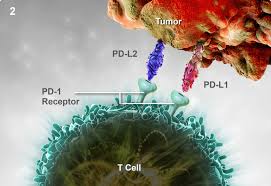
Habitualization carries with it the important psychological gain that choices are narrowed. The background of habitualized activity opens up a foreground for deliberation and innovation which demand a higher level of conscious attention.
All human activity is subject to habitualization. Category 1 problems are mostly handled by habit. Things are put into a pattern and recognized as a pattern. Habits become routines in the general stock of knowledge, taken for granted at hand for projects of the future and narrowing the choices. Habitualization provides the direction and the specialization of activity that is lacking in man’s biological equipment, reducing the accumulation of tensions that result from undirected drives. This releases internal energy available for deliberation and innovation.
All human activity is subject to habitualization. Man’s life is cast into a pattern. Even someone above the mentor line has, at least, the company of his operating procedures, psychological relief. The background of habitualized activity opens up a foreground for deliberation and innovation. Maslow.
Legitimation as a process is an objectivation of meaning. Legitimation produces new meanings that serve to integrate the meanings already attached to disparate institutional processes. The function of legitimation is to make objectively available and subjectively plausible the objectivations that have been institutionalized. These schemes are highly pragmatic, directly related to concrete actions. Proverbs, moral maxims and wise sayings are common on this level. Here, too, belong legends and folk tales, frequently transmitted in poetic forms.
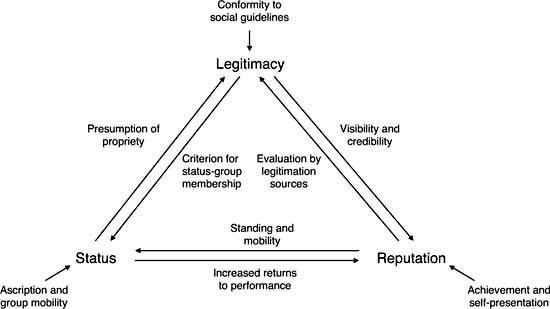
Internalization
The beginning point of socialization is internalization: the immediate apprehension of an objective event as expressing meaning, i.e., another’s subjective process put up for adoption. His subjectivity is objectively available to me. It provides a basis for understanding my fellowmen and apprehending the world as a meaningful social reality. You are “taking over” the world in which others already live. You can understand the other’s subjective processes and the world within which he lives as it becomes your own.
With such personalization, you not only understand his momentary subjective process, you define them reciprocally. A nexus of motivations is established that endures. You participate in each other’s being. Only with primary personalization does a candidate become a Bona fide member of society. It takes place under conditions that are highly charged emotionally. Internalization occurs only as identification occurs. Later on, a secondary socialization takes place that inducts an already socialized individual into new sectors of the objective world of his society. The most important social conditioning is the primary one and the secondary socialization must resemble it.
The self is a reflected identity, reflecting the attitudes first taken by significant others toward it. It entails a dialectic between identification by others and self-identification, between objectively assigned and subjectively appropriated identity. In the process he takes on their world that defines his identity. All identifications take place within horizons what imply a specific social world. Subjective appropriation of identity and subjective appropriation of the social world are aspects of the same process of internalization, mediated by the same significant others.
Institutionalization is not an irreversible process. The tendency to persist diminishes with time (2nd Law). While the government is eternally stuck in gear, private small businesses do as they please. It is the difference between producing propaganda that will convince others and producing memoirs that will convince oneself.
All non-human animals live in closed worlds whose structures are predetermined by their biological equipment. Man’s relationship to his environment is characterized by world-openness. Man’s drives are under-developed, unspecialized, and undirected. That gives him immense plasticity in his response to his environment. His ontogenetic development is shaped by socially determined interference throughout his life.
Humanness is socio-culturally variable. While man has an invariant nature with respect to anthropology, his persona is molded by sociology. Man constructs his own nature, producing himself as a social enterprise.
Empirically, human existence takes place in a context of order, direction, and stability. Social order precedes any individual organismic development. He is transformed by social order into a relative world-closedness, a tradeoff providing direction and stability. Social order is a human product. It cannot be derived from natural laws. This externalization is an anthropological necessity. The inherent instability of the human organism requires man himself to provide a stable environment for his conduct.
Institutionalism occurs whenever there is a reciprocal typification of habitualized, shared actions by types of actors. Institutions imply historicity and control. These functionalities cannot be created instantaneously.
Institutions control human conduct by setting up predefined patterns of conduct which channel it in one direction selected out of many possible channels. Thus a segment of human activity is subsumed under social control. Institutionalism is incipient in every social situation continuing in time. It is present in nucleo.
By watching each other perform, each person is able to predict the other’s actions. Concomitantly, the interaction of both becomes predictable. Their life collectively is defined by an enlarging sphere of taken-for-granted routines.
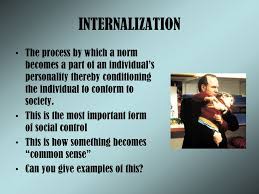
Plasticity
Human nature, humanness, is a socio-culture variable. Man constructs his own nature, producing himself, as a social enterprise.
There is no species-specific environment for man. Unlike other animals, he is not limited to closed worlds whose structures are predetermined by his biological equipment. He is open to the earth from pole to pole. His relationship to his surrounding environment is imperfectly structured by his own biological constitution. Blessed with great plasticity, environment-wise, he can engage in whatever activity he can think of.
Grounded in his ontogenetic development, man’s drives are highly unspecialized and undirected, making him capable of applying his given equipment to a wide range of activities, always subject to socially-determined interference.
The immense variety and luxurious inventiveness of man are produced by his own socio-cultural formations superimposed on his invariant human nature, Stone Age model.
The “self” of man cannot be understood apart from the particular social context in which it was shaped. He is homo socius, a human social personality. He lacks the necessary biological means to provide order, direction, and stability for his conduct. First, a given social order precedes any individual development. His world openness is restricted by that social order into a relative and artificial world-closedness, providing direction and stability at a cost in autonomy.
Social order is a human product, an ongoing process, is produced by man in the course of his ongoing externalization. It is not biologically given or derived from any biological data in empirical manifestations. It is not given in the natural environment from the nature of things. It cannot be derived from the laws of Nature. Social order exists only as a product of human activity. No other ontological status may be ascribed to it. The necessity for social order stems from man’s biological equipment.
Externalization is an anthropological necessity. It a process in which a person becomes dependent on the environment that he himself has created. Grounded in his biological equipment, man must ongoingly externalize himself in activity. The inherent instability of his social life calls for a stable environment for his conduct, an environment that he himself has to create by specializing and directing his drives. This is the basis of social order.
No matter how massive, an institution is a humanly-produced, constructed objectivity. It does not acquire ontological status apart from the human activity that produced it. The notion that man is capable of producing a world he then experiences as something other than a human product is ubiquitous.
- Society is a human product
- Society is an objective reality
- Man is a social product
When the 2nd Law is ignored, it is more likely that institutions will over-exercise their authority to dictate behavior. Control is by sanctions. “The children must be taught to behave,” and once taught, “kept in line.” The disconnect from unavoidable natural law to necessary organizational change is quite predictable. The end result of authority-forced conformity to obsolete traditions can only be social system chaos and progressive deterioration. Meaningful reciprocity in institutional processes becomes impossible.
Do not waste time trying to articulate the “logic” of institutions. Their logic does not reside in their performance, internal or external, but in the way these are treated in reflection about them. Superimposing a logic on institutional order is strongly deceptive. If it is taken for granted as true, that the institution functions and integrates as it is “supposed to,” many will be needlessly harmed.
Only a small part of the totality of human experiences is retained in consciousness. In time the experiences become sedimented, congealed in recollection, resident in the subconscious mind as recognizable entities. It’s how the individual makes sense of his biography. Several individuals can share a common biography, experience of which become incorporated in a common stock of knowledge.
Since outsiders have to be kept out, there is a problem. How do you keep them out at the same time having them acknowledge the legitimacy of your operation? It is done through intimidation, propaganda, and the manipulation of prestige signals. Insiders have to be kept in and that involves personalization, dignity, and building self-confidence. Our contemporary experience is so full of examples of this sort that it is unnecessary to belabor the point.
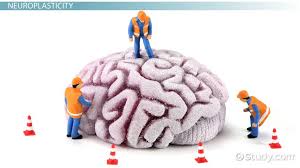
Reification
Reification is the apprehension of human phenomena as if they were material things. It is the apprehension of the products of human activity as if they were something else other than human products. Man is quite capable of forgetting his own authorship of the human world such that the dialect between man as producer and his products is lost to consciousness. The reified world is a dehumanized world, experienced as a strange facticity. It is a mode of consciousness, a modality of man’s objectification of the human world. That’s right, man is capable of producing a world that denies him.
The automatic apprehension of reification as a modality of conscious thinking has to be consciously “de-apprehended” in order to solve complex problems. The basic recipe for the reification of institutions by the ruling class mystagogues is to claim ontological status independent of human activity. Through reification, the world of institutions is merged with the world of Nature, to the advantage of the privileged class. The life of the non-privileged class becomes necessity and fate, for which the victims may logically disclaim responsibility. The reification of roles narrows the subjective distance that the individual may establish between himself and his role-playing to the vanishing point. “I have no choice in the matter, I have to act this way because of my position.” He is apprehended by others as nothing but that type, depersonalized.
As soon as any objective social world is established, it is subject to reification on autopilot. Reification exists in the consciousness of the man in the street and that is extremely significant. Man loses the central point that what was made by man can be altered and remade by man. It is an extreme step in the process of objectification where comprehensibility as a human enterprise is lost. This reversal in consciousness plays directly into the objectives of the ruling class. Man the producer of a world is seen as its product and human activity as a epiphenomenon of non-human processes.
It is essential to understand what is going on in hierarchical society because it colors sociological thought. Reification explains the difference between what men do and what they say they intend. POSIWID. This disconnect is key to understanding the collapse of institutional order.

Legitimation
The process of legitimation produces another layer of meanings that serve to integrate the meanings already attached to disparate institutional processes. Integration is the goal of the people doing the legitimation.
Integration and subjective plausibility require that the institutional order should make sense concurrently to the people engaging the different institutional processes. Plausibility involves the subjective recognition of the overall sense underwriting the situationally predominant motives of the actors. The totality of the individual’s life must be made subjectively meaningful, his biography must be endowed with a meaning that makes the narrative subjectively plausible. His “vertical” level must be supplemented with a “horizontal” level of integration and subjective plausibility of the institutional order.
When a social system is first formed, its legitimation is self-evident to all concerned. The articulation of legitimation becomes necessary with turnover of the roster, where the unity of history and biography is broken. To restore same there must be justifications and explanations of the salient elements of the institutional traditions, i.e., legitimation. It ascribes cognitive validity to its objectivated meanings and a normative dignity to its practical imperatives. It is the platform of roles that separate right from wrong actions within the structure. It tells the individual why he should perform one action and not another, why things are what they are. Knowledge precedes values in the order of legitimization:
- Incipient legitimization
- Theoretical propositions, pragmatic schemes
- Explicit theories in terms of a differentiated body of knowledge
- Symbolic universes, theoretical traditions of integration
The symbolic level provides the most comprehensive level of legitimation that cannot be experienced in everyday life. The symbolic universe is presented as the matrix of all socially objectivated and subjectively real meanings, within which the history of all institutions takes place. All human experience can thereby be conceived as taking place within the symbolic universe, constructed from socially objectivated and subjectively real meanings. Its meaning-bestowing capacity far exceeds the domain of social life and applies to all situations of hierarchy and solitude. You can always “locate” yourself.
Legitimatization creates a world. Institutional roles become modes of participation in a universe that transcends and includes the institutional order of operations. The crystallization of symbolic universes follows objectivation, sedimentation, and accumulation of knowledge. They are social products with a history. These products of human consciousness present themselves as inevitable. It is not.
Integration can take place without symbolic processes and without conflicting with the realities of everyday experience. However, the symbolic universe legitimizes everyday roles, priorities, and operating procedures by placing them in context with the body of sociological knowledge. It also makes possible the ordering of the different phases of biography. Such symbolism is conducive to feelings of security and belonging. Man is repeating a sequence that is given in the “nature of things” as well as his own nature. He reassures himself of living “correctly.” He understands his trajectory into the future in GPS detail. He is a real entity in an ultimately real universe. For those who care, it is enough to know that their “true self” is knowable.
The failure to adequately indoctrinate the new, “turnover” generation regarding legitimization is the prime mover of institutional dysfunction. Once in dysfunction, efforts at legitimation of the organization are a waste of time.
Plan B is self-legitimating by the sheer facticity of its objective existence in a given organization. It is a self-enclosed, flourishing social system that speaks for itself silently through its performance. It handles the maintenance factor by continuous improvement via entropy extraction. A significant sign that Plan B is in effect is that the foremen who refuse to learn their new role, extract themselves from the roster of keystones.
Dialectic is a discourse between two or more people holding different points of view about a subject but wishing to establish the truth through reasoned argumentation. Dialectic resembles debate, but the concept excludes subjective elements such as emotional appeal and rhetoric.
Dialectic contrasts to both the eristic, which refers to argument that aims to successfully dispute another’s argument (rather than searching for truth), and the didactic method, wherein one side of the conversation teaches the other.
Primary socialization
The world of the individual is constructed during primary socialization by people whose word is taken for granted, massively and indubitably true. It is learning sequences that are socially defined, from recognition of growth and differentiation. There is endless dispute over the learning sequences. Different skills are required at different ages in different societies. Primary socialization ends when the concept of the generalized other has been established in the consciousness of the individual. He is an effective member of society and in subjective possession of a self and a world. The 2nd Law takes over from there. Socialization is never total and never finished. The stock of knowledge is expanding exponentially.
Maximum attainable success in socialization occurs in primitive societies with little division of labor and little distribution of knowledge. Everyone is who he is supposed to be. Identities are recognizable both objectively and subjectively. Since he is that in a unified, unstratified way, he is content with his lot.
To maintain your M2Rs, the conversational input must be continual and consistent. The need explains why solitary confinement is so psychologically destructive. While other methods of interaction are available, frequency and intensity have to be high.

Maintenance
The plausibility structure must become the individual’s world, displacing the one held at the time of the disturbance. Resocialization requires segregation of the individual from the inhabitants of other worlds while backsliding is in process. Legitimization must include the transposition process itself. This is the intractable problem in betrayed-trust restoration. The event brought about a rupture in the subjective biography of the individual – “Then I thought … now I know.” It is notoriously difficult to forget mistakes of your past. It is much easier to invent things that never happened and rationalize them as legitimate.
These days it is impossible to have a secondary socialization that is seamless with the primary socialization. Too many alternative realities are competing for your attention to allow the choice to be made by your subconscious mind’s intuition unchallenged. Social media makes choosing prudently, utterly impossible.
The need for intervention with therapeutic mechanisms increases in proportion to the unsuccessfully socialized individuals. A difference in “worlds” available rather than just different versions of the same world make socialization a cognitively-demanding proposition. There is considerable asymmetry between socialization by the family and socialization by peer group. Once socialized, all men are potential “traitors to themselves.”

Roles
The origins of roles lie within the processes of habitualization and objectivation as the origin of the institution itself. Roles appear as soon as the common stock of knowledge is being formed. It is endemic to social interaction from the first contact. Roles are basic to the behavior control system wielded by the ruling class. As soon as a role is formed, conduct is susceptible to enforcement. Noncompliance is not an option. Punishments vary. The roles represent the institutional order on two levels.
- Performance of the role represents itself.
- The role represents the entire institutional nexus of conduct.
The collection of roles stages a drama, dependent on the reiterated performance of its prescribed roles by its members. The actors embody the roles and actualize the drama. The enactment makes it possible for institutions to exist as a real presence in the experience of living individuals.
All the materiality of the institution is inert until brought to life in actual human conduct. The representation of an institution in and by roles is the de facto representation on which all other representations are dependent. When individuals reflect on these matters, they face the problem of binding the various roles into a cohesive whole that makes sense. If the integration problem is not solved in legitimation, it remains unsolved. All roles represent the institutional order. Most have tactical significance and some have strategic significance. You are well aware of the common-mode failure of the super organizations, such as political systems, the UN, EU, and the WHO.
Institutionalization occurs whenever there is a reciprocal typification of habitualized actions by roles, where actions are predictable. Typification is the principle that each nominal taxon in the partnership, work group, family group, genus group, or species group has a name-bearing type fixed that provides the objective standard of reference that determines what the name applies to. The typification of habitualized actions that comprise institutions are always shared ones. They are available to all members. Every social situation continuing in time gravitates towards institutionalization.
Because of turnover, institutional order requires the typification of performances. Not only specific actions but forms of actions are specified. These have a linguistic objectification. In principle, an action and its sense can be apprehended apart from individual performances of it and the variable subjective processes associated with them. The performances become objective and generally known action, which are recurrent and repeatable by anyone up to the task. The action going on determines, for that moment, the self-apprehension of the agent. He identifies with the order of work and reflects on what it delivers. He identifies with the socially-objectivated typifications but distances from them to reflect on his conduct. In so doing, both acting self and acting others are apprehended as types, not as individual personalities, by definition interchangeable. This forms a role within a social system. All institutional conduct involves roles.
The construction of role typologies is a necessary corelate of the institutionalism of conduct. Institutions are embodied in individual experience by means of roles, objectified linguistically. By playing roles, the individual participates in a social world. By internalizing his roles, the same world becomes subjectively real to him. In the common stock of knowledge there are standards of role performance accessible to all members of a society as part of the same stock of knowledge. It is known that these standards are known. Consequently, every putative role-player is held responsible for abiding by the standards, serving as a control.
Roles act as mediators on the common stock of knowledge. By virtue of playing his role, the individual is inducted into specific areas of socially objectified knowledge. He learns the norms, values, and emotions. He must be initiated into the various cognitive and affective layers of the body of knowledge that is directly and indirectly appropriate to his role. Each role opens an entrance into a specific sector of society’s total stock of knowledge. This maps a social distribution of the institution’s knowledge.
Role-specific knowledge grows at a rate much faster than generally relevant and accessible knowledge. The subdivision of roles requires standardized solutions readily learned and transmitted. These require specialized knowledge of contexts and means/ends relationships in terms of which the situations are socially defined. Specialists arise each having to know whatever is deemed necessary for fulfillment of their role. Eventually the layman gets confused.
Regarding roles and knowledge, there are two vantage points.
- Institutional order: The roles appear as institutional representations and mediations of the institutionally objectivated aggregates of knowledge. Society exists only as individuals are conscious of it.
- Several roles: Each role carries with it a socially defined appendage of knowledge. Individual consciousness is socially determined.
Both perspectives point to the same global phenomenon – the essential dialectic of society. While roles are representative of an institutional order that defines their character, the institutional order is real only insofar as it is realized in performed roles. The importance to the sociology of knowledge is revealed in the mediations between the macro-universes objectivated in a society and the ways by which these universes are subjectively real to its members. These essential features may be taken as sociological constants.
In every society it is essential to recognize institutional activity that is institutionalized apart from the task actions that are not. There is great historical variation in this matter. If relevance structures are generally shared, the scope of institutionalization will be wide. If only a few relevance structures are shared, the scope will be narrow. This means institutional order will be fragmented.
Consider the two extremes. If institutionalization is total, all problems are common, all solutions are socially objectivated. With all social actions institutionalized, operations resembles a liturgy. There is no role-specific distribution of knowledge. No examples can be found in history. Any society increasing the divisions of labor is moving away from this extreme.
The opposite extreme is a society with only one common problem and institutionalization occurs only with respect to actions concerned with this problem. There would be no common stock of knowledge. It would be completely role-specific. Not even approximations of this condition can be found in history. Availability of economic surplus is necessary to support specialized activities.
The segmentation of institutional order and the distribution of knowledge prevents integrating meanings that encompass society as a whole and provide a context of objective sense over the individuals fragmented social experience. In practice, role-specific knowledge becomes esoteric against the common stock. With economic surplus, more subuniverses appear to fragment the institutional order and escape its tyranny. Conflicts between rival schools of thought, esoteric enclaves inaccessible to outsiders, become the normal state of affairs. The multiplication of perspectives destroys any chance of establishing a symbolic canopy for the entire institution.
The individual can live in society assured that he really is what he considers himself to be as he engages his routine social roles in broad daylight and under the gaze of significant others.
A society’s stock of knowledge is structured in terms of what is generally relevant and what is relevant only to specific roles. The social distribution of knowledge entails a dichotomization in terms of general and role-specific relevance, because of the division of labor, role-specific knowledge will grow at a faster rate than generally relevant and accessible knowledge. The increasing number and complexity of the resulting sub universes of specialized knowledge make them increasingly inaccessible to outsiders.
On this level of societal legitimation, the reflective integration of discrete institutional processes reaches its ultimate fulfilment. A whole world is created. All the lesser legitimating theories are viewed as special perspectives on phenomena that are aspects of this world. Institutional roles become modes of participation in a universe that transcends and includes the institutional order.
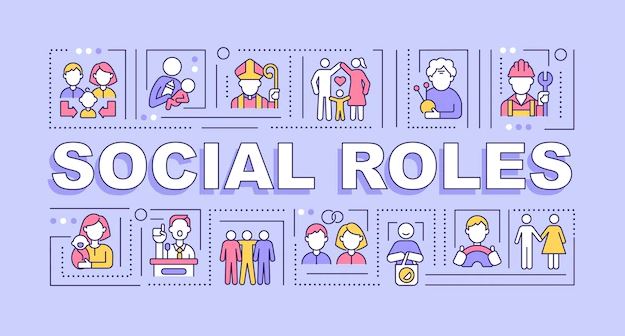
Outliers
The feature of engineering education is a formal, highly rational, emotionally neutral process. Engineers are not called upon to sacrifice themselves to their profession, like artists. They are not in competition with others, as in music. They don’t have to die for the revolution.
An intellectual is defined as a sociology expert whose expertise is not wanted by society at large. He has to launch a revolution to put his theories into practice. If he wants to maintain his deviant definitions of reality as reality, he requires social support. Institutions and symbolic universes are legitimated by living individuals who have concrete social locations and concrete social interests. Most efforts in this field go to justifying business as usual gone toxic. No legitimation of concepts takes place in isolation from the trenches of general history.
Knowledge
Knowledge is the certainty that phenomena are real and that they possess specific, measurable characteristics. Knowledge is a social product as well as a factor in social change. Knowledge is the objectification of subjective processes by which the commonsense world is constructed.
The social stock of knowledge differentiates reality by degrees of familiarity. As the knowledge of the criminal differs from the criminologist, the knowledge of the producers differs from the knowledge of the privileged consumers. The social distribution of knowledge thus begins with the simple fact that you do not know everything known to your fellowmen, and vice versa. Participation in the social stock of knowledge permits “localizing” the individuals in society and handling them in an appropriate manner.
All societies have a division of labor and concomitantly, a social distribution of knowledge, especially special knowledge whose carriers are institutionally defined. Secondary socialization is the acquisition of role-specific knowledge, the internalization of institution-based subworlds. Roles are rooted in the division of labor, defined by role-specific vocabularies and tacit understandings. They are cohesive realities with normative, affective, and cognitive components. They require a legitimating apparatus maintained at the ready. All this depends upon the status of knowledge concerned with the symbolic universe as a whole and a preceding process of primary socialization. The already internalized reality has a tendency to persist. In secondary socialization, the resultant decline in the position of the family is too well known to require elaboration.
A society’s stock of knowledge is structured in terms of what is generally relevant and what is relevant only to specific roles. The social distribution of knowledge entails a dichotomization in terms of general and role-specific relevance, because of the division of labor, role-specific knowledge will grow at a faster rate than generally relevant and accessible knowledge. The increasing number and complexity of the resulting sub universes of specialized knowledge make them increasingly inaccessible to outsiders.
Theoretical knowledge, at best, is only a small part of what passes for knowledge in a society. What “everybody knows” about a social world, an assemblage of maxims, morals, proverbial nuggets of wisdom, values, beliefs, myths, etc. On another level, every institution has a body of transmitted recipe knowledge that includes the rules of conduct. Such knowledge supplies the motivating dynamics of institutionalized behavior and defines the roles to be played. Socially objectivated as knowledge, the body of validated truths about reality controls and predicts all conduct.
Once a body of knowledge becomes autonomous it acts back on those who produced it. The relationship between knowledge and its social base is a dialectical one. The object of cognition is determining the subjective meaning of action, the knowledge that guides conduct in everyday life.
The socialization of knowledge
Knowledge learned in socialization mediates the internalization within individual consciousness of the objectivated structures of the social world. Knowledge is at the heart of the fundamental dialectic of society. It programs the channels in which externalization produces an objective world through the cognitive apparatus based on language. It orders things into objects to be apprehended as reality, ready for social conditioning. Knowledge about society is a realization in the sense of apprehending the objectivated social reality and the processes which produce this reality. The sociology of knowledge must validate the process in which this knowledge-building occurs.
An individual is generally ready to admit that he is ignorant of periods in the past or places on the other side of the globe. But he is much less likely to admit ignorance of his own period and his own place. He has “recipe knowledge.” Everyday life is dominated by recipe knowledge that is limited to pragmatic competence in routine performances – the master of Cat 1 problems.
The contents of socialization are determined by the social distribution of knowledge. Recipe knowledge is the frame of reference in use for detecting deviant behavior (as a departure from reality). This distinction calls for pushback by the social system as a natural law, namely the Nash Equilibrium. What is taken for granted as knowledge in the society comes to be coextensive with the knowable. It frames how anything not yet known will come to be known in the future.
Intellectuals have a particular variety of recipe knowledge; they know just enough to be able to get through their dealings with other intellectuals. There is a recipe knowledge for dealing with modernity in intellectual circles; the individual must be able to reproduce a small number of stock phrases and interpretive schemes, to apply them in “analysis” or “criticism” of new things that come up in discussion, and thereby to authenticate his participation in what has been collectively been defined as reality in these circles. In practice it is indistinguishable from random.
Depending on the social span of relevance and its complexity, knowledge may have to be reaffirmed through symbolic artifacts as mnemotechnic aids. All transmission implies control and legitimation procedures used by the transmitting personnel. Nothing gets transmitted on automatic. It has to be attained in a deliberate manner balancing ingenuity and credulity. The sociology of knowledge presupposes a sociology of language.
Knowledge born out in experience and fit for organizing as a body of knowledge can be internalized as subjective reality and thereby shape the individual. He exists in a social world defined and controlled by this body of knowledge. Participation in the social stock of knowledge permits “localizing” the individuals in society and handling them in an appropriate manner.
Knowledge is encountered daily as socially distributed, possessed differently individual by individual. Knowledge about how the socially-available stock of knowledge is distributed is a vital component of that same stock of knowledge. You learn who the “go to” people are in areas of complex and esoteric areas of expertise.
You live in a commonsense world of everyday life equipped with specific bodies of knowledge. You know that others share part of this knowledge and they know that you know this. Commonsense knowledge is the construction of reality. It includes the subjective experience of everyday life. Commonsense knowledge is shared knowledge of the normal, self-evident routines of everyday life as it proclaims itself, taken for granted as reality. The sociology of knowledge is dependent upon the process that congeals phenomena as “reality” for the man in the street.
What everybody knows has its own logic as part of the common store of knowledge. It leaves the totality of that world of problems opaque. Your knowledge of everyday life is structured in terms of relevances that intersect the relevance structures of others. Focus on the processes by which any body of knowledge comes to be socially established as reality.
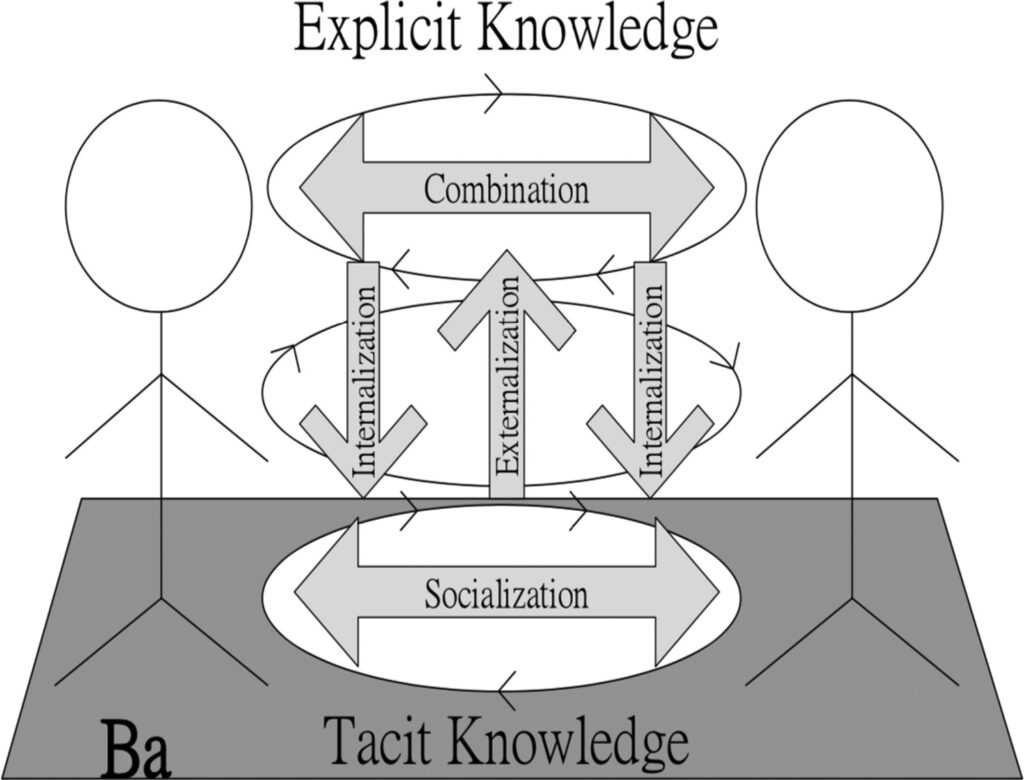
Afterword
The organism continues to affect each phase of man’s reality-constructing activity and, in turn, the organism is affected by this activity. While man’s invariant human nature, his animality, and his sociality are shaped by everyday experience, there is an unbreakable connection between Nature and society. It is an ongoing dialectic between the individual and his social world. While man posits limits to what is socially possible, the social world, which is pre-existent to each individual, imposes limits on possibilities as well. It is the mutual limitation of organism and society. As society sets limits on man, man sets limits on society. Society has no idea of the possibilities of a flourishing society. The rulers value control over the producers, not their performance.
In the internal aspect, the dialect manifests itself as the resistance of the biological to its social molding, especially primary socialization. The degree of biological frustration in secondary socialization is likely to be less acute. The individual continues to experience himself as an organism apart from the various socially-derived classifications. Everyday life includes both greater and lesser successes and defeats.
We live in a world vastly different from any preceding one, equipped with a Stone Age genome crafted by Nature serviceable for a hunter-gatherer life. The dialectic of individual and society, of personal identity and social structure, is the basis for understanding social behavior. Don’t look for help from the science of sociology. Nature equipped you with a conscious mind entirely capable of taking the reality of today’s world and living a happy, self-fulfilling life. If you turn your responsibility for your quality of life over to an Establishment of society that treats you as a number, because it must, you can see your trajectory in the society surrounding you.
Views: 84


